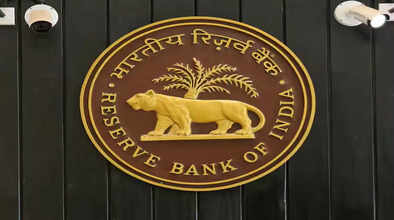Big change in co-lending rules, RBI issued a new draft for all banks and NBFCs, to know what is special.

RBI co-lending draft framework 2025: RBI has released a new draft framework with the aim of making the co-lending system between financial institutions like banks and NBFCs more transparent, secure, and customer-centric.
RBI co-lending draft framework 2025: The Reserve Bank of India (RBI) in its monetary policy meeting has released a new draft framework with the aim of making the co-lending system between financial institutions like banks and NBFCs more transparent, secure and customer-centric. Co-lending is when two or more financial institutions together give a loan to a customer and share the risk and profit associated with it. Till now there were guidelines for such arrangements only in some cases of priority sector loans and digital lending, but now RBI has prepared a comprehensive and clear framework to cover all types of co-lending.
Which banks will be applicable to the new draft
This new draft will be applicable to all public and private banks (except Small Finance Banks, Local Area Banks and Regional Rural Banks), All India Financial Institutions, all NBFCs and Housing Finance Companies. Under this framework, it will now be clear in the co-lending system which institution is in which role, who will give loan to the customer, who will handle the customer interface and how the rules from complaint redressal to fee recovery will be decided.
Complete information will be given to the customers
According to the draft, every customer taking a loan under the Co-Lending Agreement (CLA) will be informed in advance through Key Facts Statement (KFS) that which institution is performing what responsibility. If there is any change later, such as the responsibility of customer service is transferred to another institution, then the consent of the customer will be mandatory.
How will the loan be recovered?
The loan recovery and payment process will be done only from a joint escrow account, so that all transactions remain transparent. Also, every institution will have to record its share of loans separately in its balance sheet and its separate reporting will also be mandatory. If one institution declares a customer's loan as NPA, then all other institutions will also have to consider the same loan as NPA.
The draft also has a provision that if there is a provision of Default Loss Guarantee (DLG) in the co-lending model, then it cannot be more than 5% of the total loan. Apart from this, it will be necessary to register the information of all loans related to co-lending separately in the Credit Bureau (CIC).
Every complaint will be resolved within 30 days
In terms of customer safety, if any institution receives any complaint related to the customer, then it will have to provide a solution within 30 days, otherwise the customer can go directly to the RBI's complaint portal. Also, all co-lending institutions will have to share this information publicly on their website and financial statements.
RBI has also clarified that any institution going outside this framework and implementing any new co-lending model will have to take permission from RBI. This step will not only provide better security to the customers but will also increase transparency, accountability and institutional trust in the loan process.

